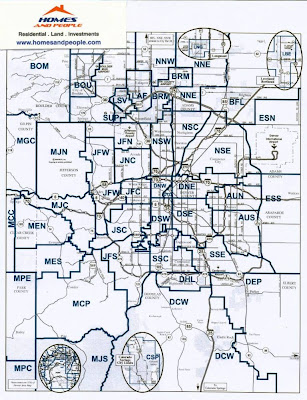Myths about home inspections in Colorado
An estimated 70 percent of all homes sold annually receive a home inspection. Still, confusion persists over what the process does, and doesn’t, involve. Here are seven common misconceptions:
1. Licensing ensures a professional home inspection. Wrong. More than 30 states have some form of inspector regulation—but state requirements vary widely. Verifying the inspector’s credentials, experience, and adherence to professional standards is still important, even in a state with licensing. Please keep in mind there is no licensing for home inspectors in Colorado — anyone can claim to be a home inspector
2. A home inspection is designed to identify problems that might be the basis for renegotiating the purchase offer. Wrong. The inspector’s service is primarily one of education, providing buyers with a better understanding of the physical condition of the home and giving them the knowledge to make smart decisions. The inspector’s observations or recommendations might help to dispel buyer anxieties and provide useful home repair and maintenance suggestions. When areas of concern or problems are identified, the inspector should play no role in fixing them or addressing them with the seller.
3. Home inspections are needed for existing homes only. Wrong. New construction is often the most in need of a thorough inspection. Many professionals offer “phase inspections” in which the property can be checked at various stages of completion.
4. Having an appraisal, code inspection, and termite or other hazard inspection eliminates the need for a separate home inspection. Wrong. Although each of these inspections is valuable, these should never be used in place of a complete home inspection. Similarly, a home inspection should never take the place of other prescribed inspections.
5. Home inspections are for the buyer. It’s true, most inspections are conducted on buyers’ behalf during the purchase process, but prelisting inspections for sellers also can be beneficial. Prelisting inspections can identify areas of concern to be addressed before the sale and can assist in disclosure matters. The American Society of Home Inspectors recommends that a home be inspected every 10 years, regardless of whether a sale is taking place.
6. Home inspectors are too nit picky and will identify every little problem in the home. A professional home inspection is an objective examination of the condition of the visible and accessible components of a home on the day of the inspection. Professional home inspectors don’t point out every small problem or defect in a home. Minor or cosmetic flaws, for example, should be apparent without the aid of a professional.
7. All home inspector certification and credentialing programs are equal. Wrong. Some organizations for inspectors offer credentials in return for nothing more than an annual payment; other certifications are new or exist mainly online. When selecting a home inspector, look at the background, history, and reputation of the person’s certifying organization.
1. Licensing ensures a professional home inspection. Wrong. More than 30 states have some form of inspector regulation—but state requirements vary widely. Verifying the inspector’s credentials, experience, and adherence to professional standards is still important, even in a state with licensing. Please keep in mind there is no licensing for home inspectors in Colorado — anyone can claim to be a home inspector
2. A home inspection is designed to identify problems that might be the basis for renegotiating the purchase offer. Wrong. The inspector’s service is primarily one of education, providing buyers with a better understanding of the physical condition of the home and giving them the knowledge to make smart decisions. The inspector’s observations or recommendations might help to dispel buyer anxieties and provide useful home repair and maintenance suggestions. When areas of concern or problems are identified, the inspector should play no role in fixing them or addressing them with the seller.
3. Home inspections are needed for existing homes only. Wrong. New construction is often the most in need of a thorough inspection. Many professionals offer “phase inspections” in which the property can be checked at various stages of completion.
4. Having an appraisal, code inspection, and termite or other hazard inspection eliminates the need for a separate home inspection. Wrong. Although each of these inspections is valuable, these should never be used in place of a complete home inspection. Similarly, a home inspection should never take the place of other prescribed inspections.
5. Home inspections are for the buyer. It’s true, most inspections are conducted on buyers’ behalf during the purchase process, but prelisting inspections for sellers also can be beneficial. Prelisting inspections can identify areas of concern to be addressed before the sale and can assist in disclosure matters. The American Society of Home Inspectors recommends that a home be inspected every 10 years, regardless of whether a sale is taking place.
6. Home inspectors are too nit picky and will identify every little problem in the home. A professional home inspection is an objective examination of the condition of the visible and accessible components of a home on the day of the inspection. Professional home inspectors don’t point out every small problem or defect in a home. Minor or cosmetic flaws, for example, should be apparent without the aid of a professional.
7. All home inspector certification and credentialing programs are equal. Wrong. Some organizations for inspectors offer credentials in return for nothing more than an annual payment; other certifications are new or exist mainly online. When selecting a home inspector, look at the background, history, and reputation of the person’s certifying organization.



Comments